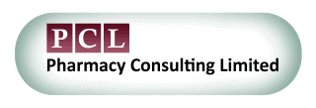The GPhC has launched on a consultation on proposals to develop its processes and procedures relating to the regulation of registered Pharmacies. Perhaps the most notable difference to Pharmacy owners is the stated intention to publish their inspection reports for the first time. This subject is sure to be a hot topic of conversation in Pharmacies during lunch breaks right now, one which may divide opinion among staff and may be evident in the feedback provided during this consultation stage. How divisive, only time will tell.
For those Pharmacy staff who may be apprehensive at the prospect of having these details published, are such fears justified? Perhaps not. Modern Pharmacy is already a very transparent profession and those working in it are used to being shadowed and observed by both trainer and trainee alike during many stages of their careers.
Employers already know the results of any success or failings of audits and inspections as is crucial for the safe and effective running of such a business by allowing them to address matters and concerns that may only become apparent to them by such findings. If the Pharmacy owner and its staff know the results of the findings, isn’t there a strong argument for the end user of any service, a patient who actually depends upon the products and services of that business and to whom a greater obligation is owed by any healthcare professional, that they too should be allowed to see the same information? We live in an age where many people check reviews of hotels and restaurants before they will stay or eat there and in the case of the latter, some may already be aware of the Scores On The Door system of verifying a food hygiene inspection status by the Food Standards Agency. If the general public are moving towards demanding greater transparency in how the food they consume is handled, then we can expect a similar shift in attitudes regarding medicine they or their family may take. Those working in the profession will already know of the high and tightly maintained standards designed to safeguard and protect the public but for the average layperson, this represents an opportunity to understand this process and have greater confidence in the quality of the end product, their medicine.
As is always the case with any regulation that extends to publishing its results publicly, critics might cite this as a perceived naming and shaming of individuals. This is unlikely to be the result. If anything it will encourage and foster a shared sense of responsibility among all staff employed in the business. There will be a greater enthusiasm to achieve success in something that all members feel they have an equal stake in and will benefit equally from positive public acclaim and recognition from future prospective employers. This will encourage a raising of standards across the board if only to motivate people who have traditionally not seen audits or inspections as being something that affects them as much as another member of staff.
Those pharmacies that perform well, stand to achieve greater business growth and the overwhelming majority of staff who take great pride in the quality of their work will rightly be recognized for doing so.
Now is the time to make this information available to public, if not only to demonstrate to patients the high quality service they are being provided with, but also to now factor good practice into the competitive element between Pharmacies.
Pharmacy professional staff will be familiar with Clinical Governance and the drive to ever increase the standard and quality of healthcare provided. This extends to all aspects of running a healthcare organisation or business including regulation and that is how this change should be viewed.
